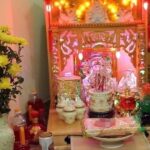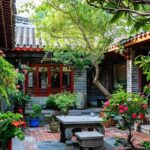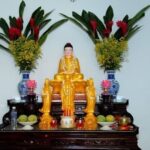In Vietnamese culture, flowers play a significant role in religious and spiritual practices, especially on special occasions such as the first and fifteenth day of the lunar month, festivals, and ancestral worship.
Fresh flowers are believed to bring new life and the essence of nature into the home. Placing a vase of flowers on the altar is thought to attract wealth and prosperity, as well as show reverence to ancestors and deities.
Wealthy families, in particular, pay close attention to altar arrangements and rituals, believing that proper respect shown to their ancestors and deities will bring blessings, luck, and prosperity. They follow specific rules when it comes to flower placement, such as the “east vase, west fruit” principle.
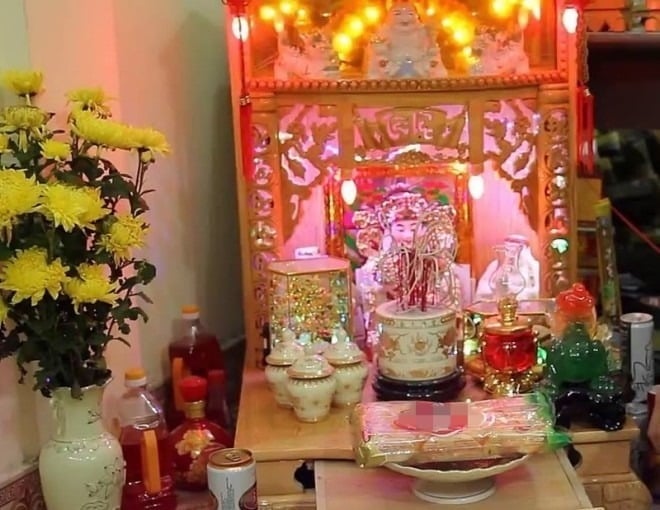
This principle is based on the natural movement of the sun, which rises in the east and sets in the west, and the life cycle of plants, which flower before bearing fruit. By placing the vase of flowers on the left (east) and the fruit plate on the right (west), the arrangement follows a natural, harmonious flow, bringing smoothness and good fortune.
When the altar faces south towards the main entrance, placing the vase of flowers on the left allows the floral fragrance to permeate the room when the east or southeast wind blows, creating a serene and sacred atmosphere for worship.
For altars with two vases of flowers, they should be placed symmetrically on both sides, with the fruit plate in the center, in front of the incense burner. This arrangement not only completes the setting but also preserves the symbolic meaning of the flowers.
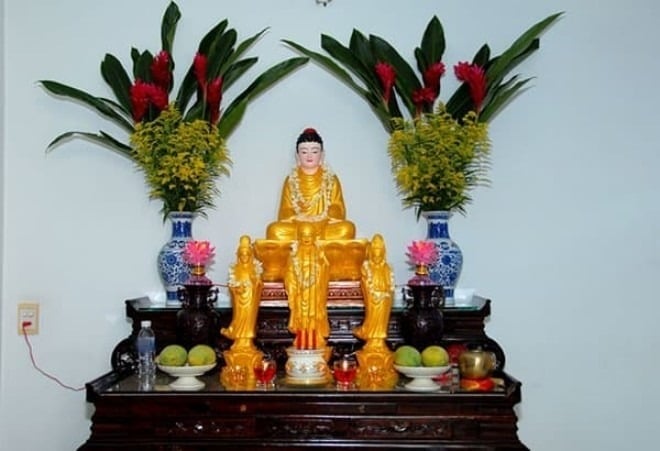
In addition to the flower arrangement, it is important to carefully select other altar items such as the three or five ceremonial objects, offering trays, and incense holders, to enhance the solemnity and purity of the worship space.
For smaller altars, such as those hung on walls, a single vase of flowers and an incense holder placed opposite each other are sufficient. Avoid overcrowding the altar with too many flowers, as this may disrupt the balance with other ceremonial items.
The vase should be made of ceramic, porcelain, or glass, while materials like copper or iron are best avoided. Flowers chosen for the altar should have a delicate fragrance, be free of thorns, and be neatly trimmed to ensure both spiritual significance and physical safety within the worship space.
“Attract Wealth and Prosperity: The Easy-to-Care House Plant for Chinese New Year and Beyond”
These ornamental plants are not only a sight for sore eyes, but they’re also incredibly easy to cultivate, making them a versatile addition to any home. Their aesthetic appeal and auspicious symbolism make them a must-have for those seeking to enhance their living spaces with a touch of natural beauty and positive energy.
The Green Thumb’s Guide to Prosperity: Four Plants for a Lifetime of Wealth and Fortune.
“Planting trees is a wise investment, both aesthetically and financially. The old adage, “If you’re poor, plant grass, if you’re rich, plant trees,” still rings true today. By planting trees in your garden, you’re not only enhancing the beauty of your space but also investing in something that grows in value over time.”

























